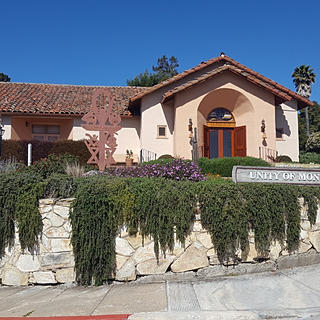Rev Michelle's Message October 7, 2021
- M Price
- Oct 7, 2021
- 3 min read
Like many others, I have been following the Gabby Petito case closely for the past few weeks. If you’re not familiar, Gabby Petito was a 22-year-old young woman who set off on a cross-country “van-life” trip with her 23-year-old boyfriend, Brian Laundrie, in the early summer, hoping to have the adventure of a lifetime. They visited various National Parks along the way, documenting their many happy moments via travelogue on social media. It turns out, however, that there were many not-so-happy moments going on behind the scenes. Apparently Gabby and Brian had a volatile, off-and-on relationship and while in Utah, an anonymous 911 caller reported seeing Brian hitting Gabby and they were pulled over by local police. The bodycam footage of them talking individually with the officers is hard to watch as it shows a sobbing young woman, distraught and clearly terrified of her boyfriend. Within two weeks of that incident, Gabby Petito had been reported missing by her family, and shortly thereafter, her boyfriend showed up back at home in Florida with the van but no Gabby. Sadly, on September 19 Gabby’s remains were found in the Bridger-Teton National Forest in Wyoming and her death was ruled a homicide. Brian Laundrie, currently a “person of interest” in the case, has gone on the lam and despite a massive manhunt including the FBI, has not yet been found.
The case has captured the public’s attention and brought a lot of awareness to the many missing persons—mostly people of color—who do not receive as much (or any) media attention, a phenomenon many are calling “missing white woman syndrome.” However, there is another element to this story I find compelling, which is the way Gabby Petito’s family has responded to the tragic death of their beloved daughter. Gabby’s parents are divorced and each of them is remarried. On the Dr. Phil show this week, the two pairs of parents/stepparents shared that when Gabby’s body was discovered, they all temporarily moved in together under one roof in order for the whole family, including the other children, to grieve their loss together. This seems so extraordinary to me. I don’t know how amicable her parents’ relationship is, but clearly everyone is putting the family’s needs as a whole first and setting aside any differences in order to support one another in getting through this incredibly difficult time.
Furthermore, in less than two weeks the family had already set up the Gabby Petito Foundation, whose mission is to bring awareness to the dual causes of domestic violence and missing persons. In an article about the foundation, which I have included as this week’s Good News segment, Gabby’s father is quoted as saying, “We want to help people. We’ve got to have a positive outcome so Gabby’s death isn’t meaningless.” Again, I find this remarkable. Clearly still in the very midst of their own grief, the family is already working to make something good from this horrible tragedy. Even as they mourn their own loss, they are trying to keep others from having to endure the same suffering.
This struck me as a perfect example of what Frank Ostaseski is talking about in the second chapter of The Five Invitations. The Second Invitation—Welcome Everything, Push Away nothing is about learning to accept, allow, even welcome the full spectrum of our human experience—including our own pain and sorrow. Ostaseski argues that when we avoid, deny, or otherwise push away the “negative” or painful parts of life, we fail to make space for the reality of this human experience and ultimately increase our own suffering. On the other hand, when we bravely face and turn toward our pain, we cultivate our ability to manage our emotions, we process rather than repress our sadness and grief, and we find a resource of inner strength we didn’t know we had. Ultimately, we find that we are compelled to use our pain and suffering to try to alleviate the suffering of others. It seems to me that this is exactly what Gabby Petito’s family has done. They are bravely facing their grief and sorrow head on, talking openly about it both privately and publicly, and using their experience as a motivator to try to effect real change so that others won’t have to suffer as they have. While still an incredibly tragic story, the Petito family’s response serves as a rich example of the incredible resilience of the human spirit.
If you haven’t done so already, I highly recommend you purchase this beautiful, practical, and insightful book, which is available on Smile Amazon. It’s not just a book about death, but really is a manual for living. I think you will find it extremely valuable. I look forward to seeing you Sunday in person or on our livestream and exploring this topic more with you!
Many Blessings, Rev. Michelle














Comments